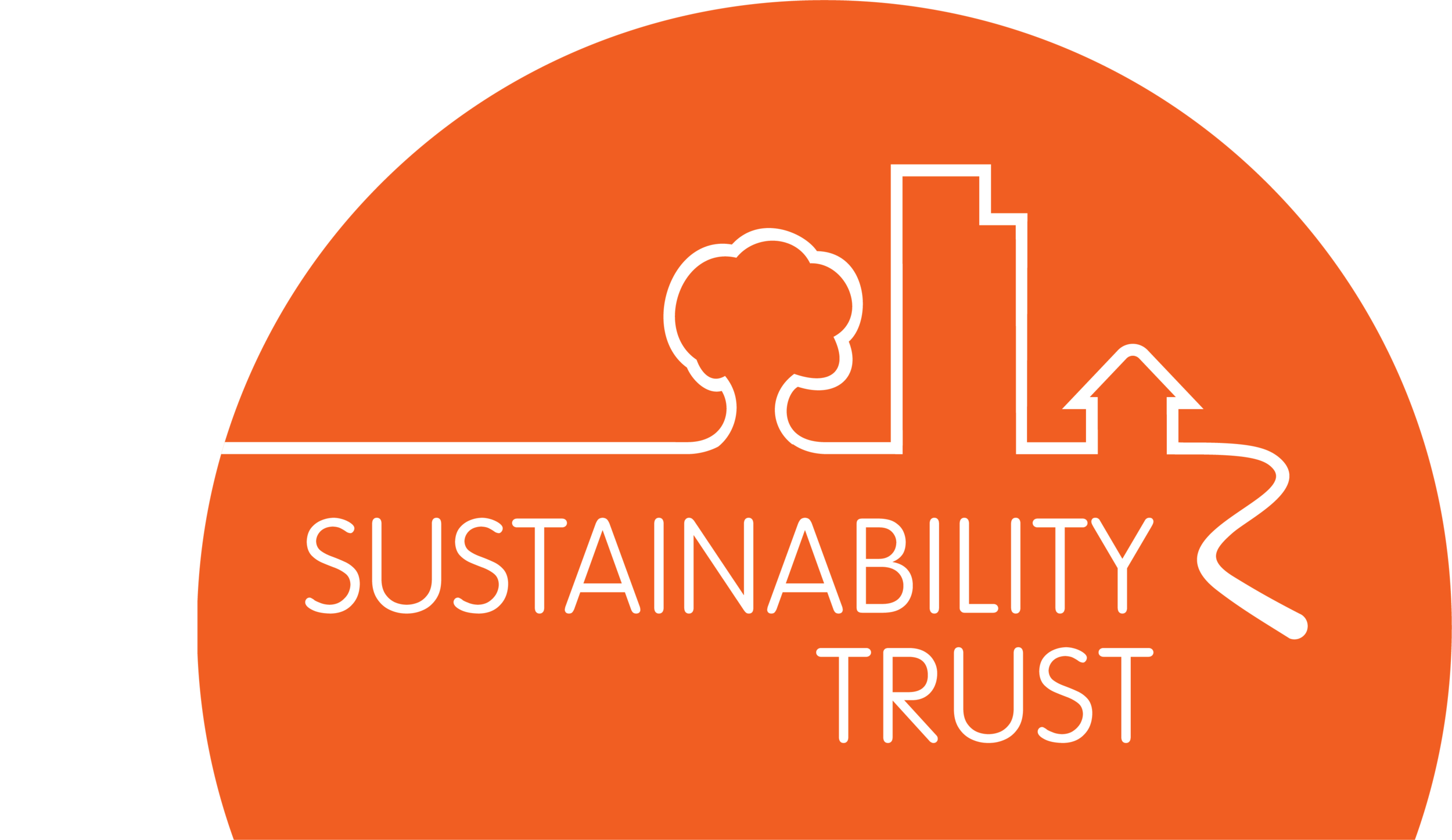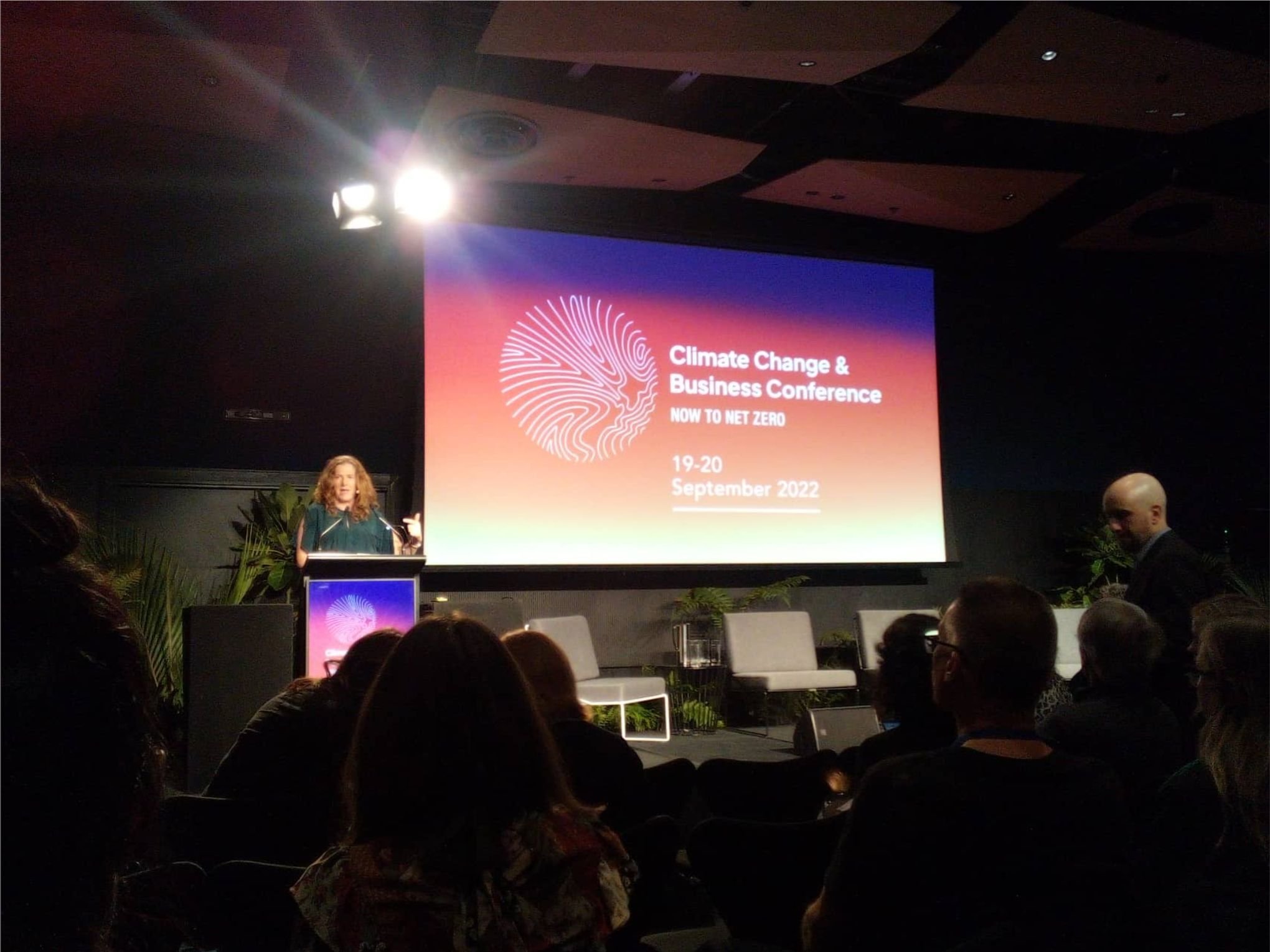Climate crisis: Three reasons for hope and action
Published 4 October 2022
Climate crisis: Three reasons for hope and action
By Nicola Warren, Sustainability Consultant, Sustainability Trust
In the same week as School Strike for Action gathered again across the country to urge the government to take urgent action on the climate change emergency, our Sustainability Consultant Nicole Warren, hopped, skipped and jumped up north to attend the Climate Change & Business Conference in Auckland.
After two very exciting days hearing all about how and why businesses must make the transition to be zero-carbon, she has pulled together her three key takeaways for hope and action.
Photo: Nicole Warren
1. Science backs urgent action
It was clear that the science shows 2030 as the year to act by. Even since the Paris agreement was signed in 2015, scientific studies have increasingly demonstrated that we well underestimated humanity’s impact on the climate. Simply put, acting by 2050 will be too late. The case to act fast and boldly is only getting stronger, building a new social licence to operate. What would our business models, cities, and schools look like in a zero-emissions world? As Christina says, this thinking needs to be the new business-as-usual!
Many speakers spoke in favour of the credibility of carbon offsetting. But it was also clear that offsets aren’t necessarily reliable climate action, and aren’t addressing the need to reduce our total emission creation. While people tend to think that planting trees is a great way to remove carbon, we have proven with existing forests that trees are vulnerable; to fires, to deforestation, and to other forms of removal. We took fossil fuels out of the ground, and we need to put that carbon back into it and make sure it stays there.
For businesses, many argued that anyone using offsets as a tick-box exercise will soon lose credibility and be outcompeted. We are moving toward a world where people, customers and banks won’t invest in you without proof that you’re putting in the work to reduce emissions. Some strong messaging going on here!
2. Your vote matters
I don’t think I’ve ever been in a room where it become so glaringly obvious that my vote matters now more than ever. In a panel with Labour, National, the Greens and ACT, only Labour and Greens were on the same page on the importance of acting for climate change.
At the extreme end, ACT implied they didn’t support the Climate Change Act, and that the Emissions Trading Scheme is all we need to successfully evade climate change. National’s spokesperson Scott Simpson implied we have 28 years left to act, and the response from the room was palpable disagreement.
The lesson for them is that businesses DO understand the reality of climate change and acknowledge that the need for action is urgent. A lesson for us individuals is that if we don’t put our party votes to use at the next election, the climate movement under the wrong government could be set back a decade or more. And at the local level, that means pulling out your voting papers for your local council elections happening now too!
3. Collaboration is more important than ever
Between representatives from impacted communities, the commerce commission, businesses in the room and the voices of people under 30, I was impressed by the unanimous recognition of the role of collaboration in the climate fight. A just transition will only be met by listening to the needs of affected communities and not trying to diagnose their problems for them. That said, representation from the most affected communities was lacking hugely, despite being extremely important.
Anahera Nin from Ngāti Toa challenged everyone in the room to know, meet and take action to empower their local Iwi group, saying they will act with or without you, so join and empower them in the climate fight. Businesses have the resource to empower and uplift our most impacted communities. I can’t remember who quoted it, but someone rightly summarised “It’s not the first business that saves the world, it’s the last one, so we need to bring everyone on the journey”, and I think this extends well beyond businesses.
Overall, businesses still have a long way to go. However, this was the biggest Climate Change & Business conference yet, and it demonstrated that sustainability has never been more resourced than it is now. That in itself should be a reason for hope, and to take up the calls to action.
By Nicole Warren, Sustainability Consultant, Sustainability Trust
Confused by all the terminology around the climate emergency? Check out Thinkstep’s Sustainability Glossary. See more about the Climate Change & Business Conference.

